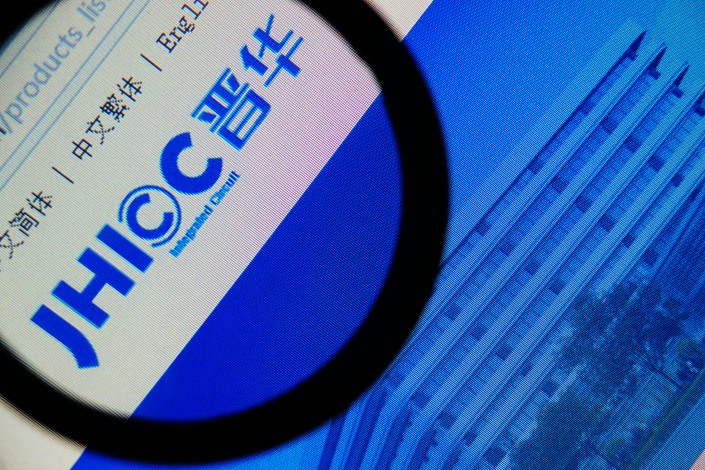China Blasts U.S. for Using National Security Card to Disrupt Free Trade

China’s commerce ministry said it opposes a U.S. ban on the sale of American components to local chipmaker Fujian Jinhua Integrated Circuit Co. Ltd., saying the move interferes with international trade under the guise of protecting national security.
The move marks the latest escalation between the world’s two largest economies, which are embroiled in a trade war centered partly on U.S. accusations that China steals American intellectual property. Those tensions have seen Washington take growing steps to block Chinese firms from obtaining U.S. technology, especially in the semiconductor space.
In the latest related move, the U.S. Department of Commerce on Monday announced its placement of Jinhua on a list that will effectively ban it from buying components, software and other technology from the U.S. due to national security concerns.
A spokesman for China’s Ministry of Commerce said in a statement on Tuesday that China opposed the U.S. “generalizing the concept of national security to abuse export control measures” and its “interference in normal international trade and cooperation between enterprises.”
“China urges the U.S. to take measures and immediately stop such wrong practices to benefit and promote normal international trade and cooperation between enterprises of the two countries and protect their legitimate rights and interests,” the ministry spokesman said.
The U.S.’s Department of Commerce accused Jinhua, a maker of DRAM memory chips, of producing products whose technology likely originated from the U.S., threating the long term economic viability of domestic U.S. suppliers to the country’s military.
The action came as leading U.S. memory chipmaker Micron Technology Inc. is embroiled in accusations of intellectual property theft against Jinhua and its partner, Taiwan’s United Microelectronics Corp. Micron sued Jinhua in the U.S. late last year, prompting Jinhua to countersue in China. As a result of the latter action, a court in the southern Chinese city of Fuzhou banned the sale of some of Micron’s chips in China.
The Jinhua ban comes just months after the U.S. took similar action against ZTE Corp., after determining the telecom-equipment maker sold American-made products to Iran in violation of earlier U.S. sanctions. That ban was officially lifted in July after the two sides reached an agreement, but prompted a heated debate in China on the country’s need to become more self-sufficient in production of high-tech chips.
In a bid to close the gap and lessen its reliance on foreign chips, China has embarked on a multibillion-dollar investment spree to build up the local industry. In one of the latest steps in that campaign, a government-led fund early this year was aiming to raise 150 billion yuan ($22 billion) to promote investment in the sector.
Contact reporter Tang Ziyi (ziyitang@caixin.com)

- 1Cover Story: China Carves Out a Narrow Path for Offshore Asset Tokenization
- 2Drownings Shake Chinese Enthusiasm for Travel to Russia
- 3Over Half of China’s Provinces Cut Revenue Targets
- 4Li Ka-Shing’s Port Empire Hit by Forced Takeover Amid Panama Legal Dispute
- 5In Depth: China’s Mutual Fund Industry Faces Overhaul After a Banner 2025
- 1Power To The People: Pintec Serves A Booming Consumer Class
- 2Largest hotel group in Europe accepts UnionPay
- 3UnionPay mobile QuickPass debuts in Hong Kong
- 4UnionPay International launches premium catering privilege U Dining Collection
- 5UnionPay International’s U Plan has covered over 1600 stores overseas






